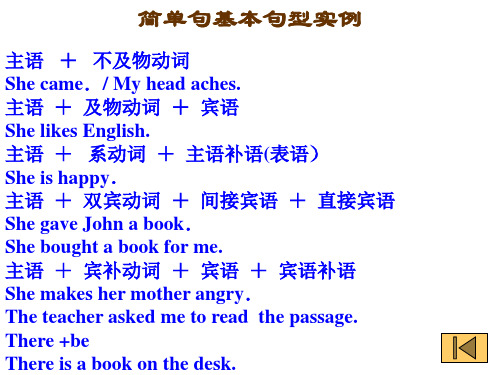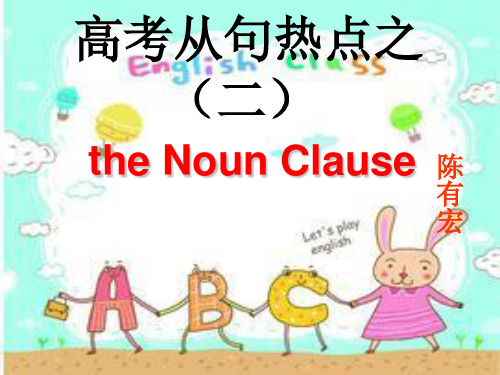A real dragon hears of Lord Ye, and is deeply moved. So he comes to visit Mr. Ye and wants to tell him that he will make friends
with Mr. Ye. 宾语语从句
“Hello, Mr. Ye. Nice to meet you!” said the dragon. But Mr. Ye runs away as fast as he can. “Oh, my God! Help! Help!” he runs and shouts.”
句 同位语 从句 (对前面名词内容进行解释)
I accepted _h_is__o_p__in_i_o_n__t_h_a_t__a_ll__o_f_u_s____
sho_u_l_d__a_t_te_n__d_t_h_e__m__e_e_t_in__g_t_o_m__o_r_r_o_w__.
回顾 2
It was because I broke my pen.
4.同位语从句
同位语从句在句中作同位语,它一般要放在主 句中某些名词的后面,说明这些名词的含义。可跟 同位语从句的名词主要有: fact, news, promise, reason, idea, hope, word, belief等。 如:
a. It is important (necessary, natural, strange, advisable明智的etc)+that b. It is a pity( a shame, no wonder etc)+that c. It is suggested (ordered, proposed建议, required, demanded, requested,





